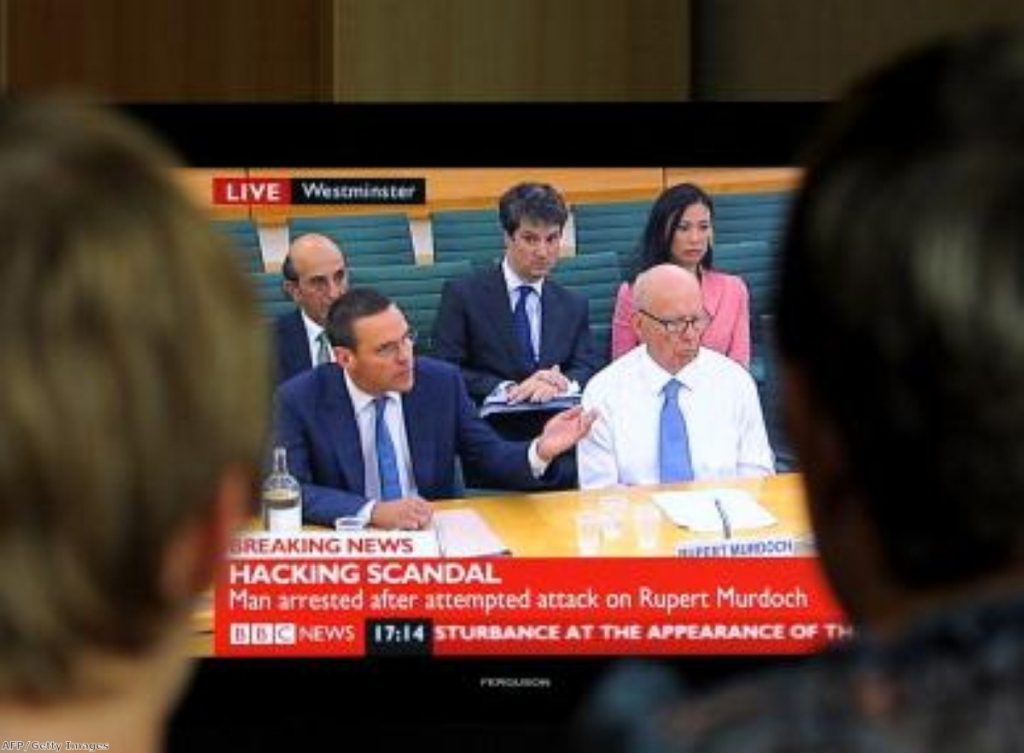BBC addicted to bashing Murdoch, Boris claims
By Adam Bienkov
The BBC are addicted to bashing Rupert Murdoch, London mayor Boris Johnson claimed today during a visit to Australia.
"I don't know how it is here… but in Britain there is an awful lot of Murdoch-bashing," Johnson told ABC Radio National this morning.
"One of those things that the British establishment and the BBC is absolutely addicted to is the cult of bashing Rupert Murdoch."


Johnson praised the Australian media mogul for his contribution to Britain.
"I really think it is an odd thing when you look at what he's done for the UK media industry. We wouldn't have satellite TV if it hadn't been for his decision to go ahead with Sky and he liberated newspapers in Britain from the shackles of the unions, so I'm afraid I don't join the Murdoch bashers at all."
Last year Johnson invited Murdoch as a personal guest during the London Olympics. The two men have also reportedly met to discuss Boris's potential leadership of the Conservative Party.
Johnson has been a long time critic of the BBC.
Following his re-election last year, his complained that his "chief opponent" during the campaign had been BBC London News.
"The prevailing view of Beeb newsrooms is, with honourable exceptions, statist, corporatist, defeatist, anti-business, Europhile and, above all, overwhelmingly biased to the Left," he wrote in the Daily Telegraph last May.
However, Johnson suggested today that Murdoch's influence could be on the wane.
Asked whether the Australian Labor party could win the upcoming election despite Murdoch campaigning against them he replied that: "Of course they can and I'm sure Rupert Murdoch would be the first to concede that the power of the printed media is not what it was twenty or thirty years ago."
Johnson also warned that his own personal popularity could be short lived.
"Popularity believe me is a wasting asset in politics," he said.
"Don't forget that Winston Churchill who led Britain to victory in the Second World War was booed at the Walthamstow dog track in 1945 when he'd steered his country through the darkest times it had ever known, so you never know what's around the corner."









